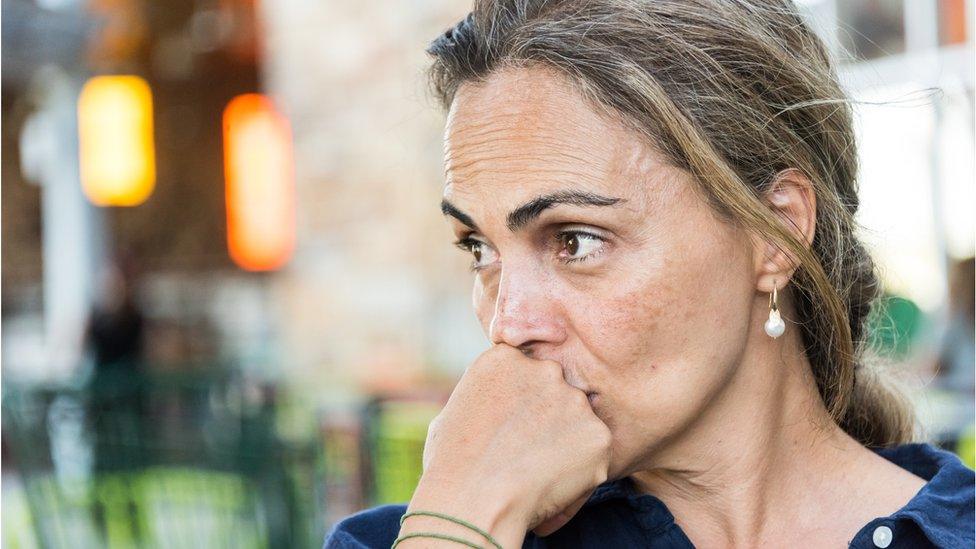Women pension age case goes to High Court
- Published
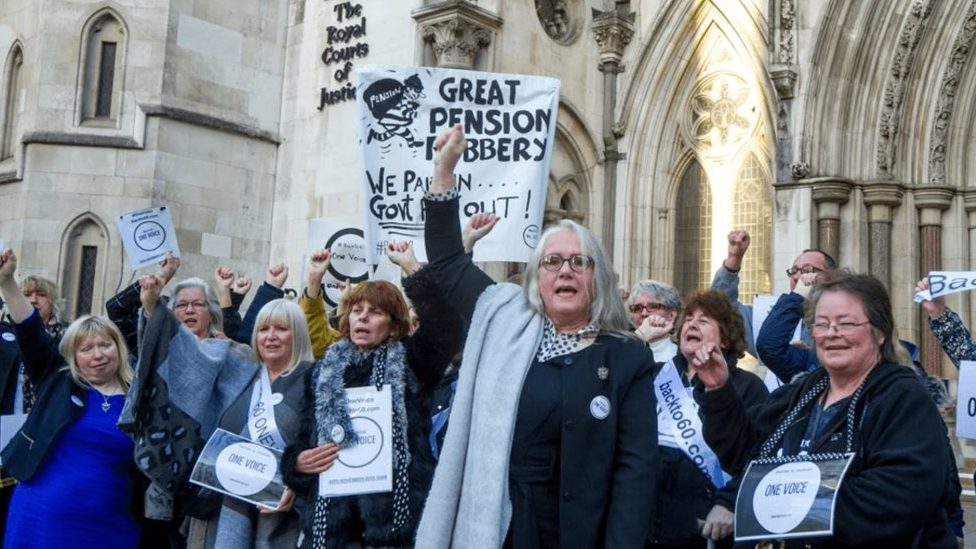
Backto60 won the right to a judicial review into increases in the pension age for women
Campaigners have taken the government to the High Court for a judicial review into how ministers raised the retirement age for women.
Women born in the 1950s claim the rise is unfair because they were not given enough time to make adjustments to cope with years without a state pension.
The retirement age for women has increased from 60 to 65, in line with men, and will rise to 66 by 2020.
The government said the rise had been "clearly communicated".
A spokesperson for the Department for Work and Pensions said: "The government decided more than 20 years ago that it was going to make the state pension age the same for men and women as a long-overdue move towards gender equality, and this has been clearly communicated."
The High Court case is expected to last two days.

Backto60, the group which brought the judicial review, is seeking repayment of all the pensions people born in the 1950s would have received if they had been able to retire earlier.
It argues that the speed of the change and what it calls the lack of warnings has disadvantaged millions of women.
However, the government has ruled this out in the past, claiming that it would cost more than £70bn.
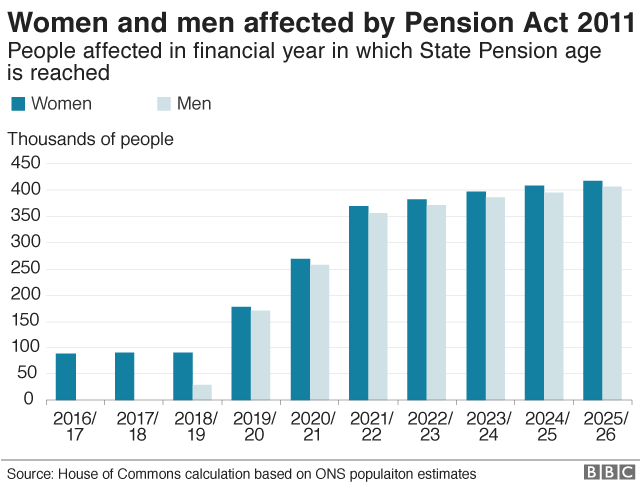

'It makes me feel angry and depressed'
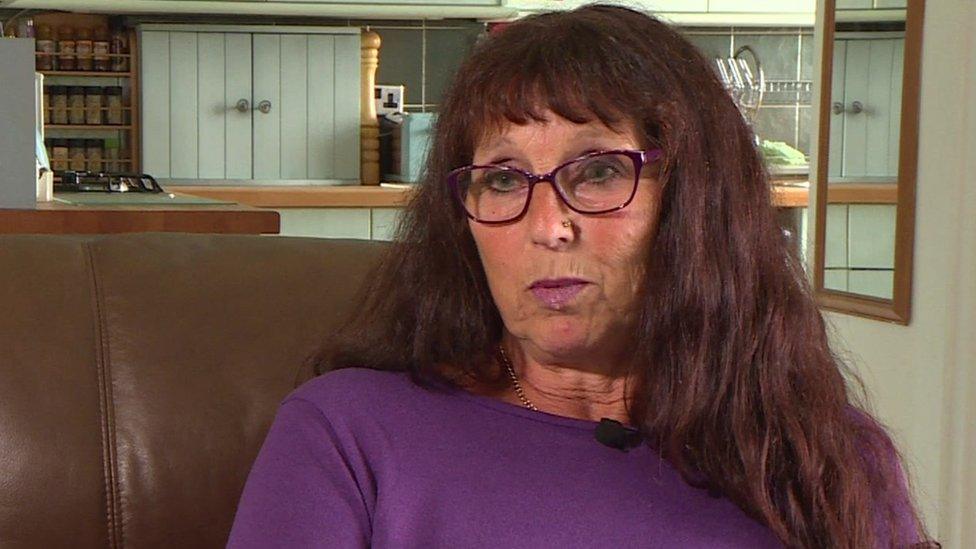
Timandra French, a 64-year-old ambulance driver from Margate, said she had just 14 months' notice that she wouldn't get her pension at 60, but instead have to wait until she was 65.
"It makes me feel angry, depressed, put upon," she says.
Ms French says she has struggled to continue in her "physically and emotionally" demanding job, which requires her to carry people up and down stairs as well as heavy bags.
"I'm at the stage now where I'm finding it pretty impossible to continue. I'm struggling," she says.
Ms French calculates that the pension payments she would have received had she retired at 60, would be worth "something like £49,000".
She wants compensation for those payments.
Ms French also believes the government's explanation for the changes about equalising men and women's retirement ages isn't fair for women, like her, born in the 1950s.
"It's not about equality, it's about saving money.
"I don' t mind the government making things equal but it has never been equal for our generation. We didn't have the same job opportunities and we have been fighting for equal pay, and taken years out to bring up children," she says.

'Inadequate'
Up until 2010, women received their state pensions at the age of 60 but that has been rising since then.
The retirement age of both men and women will increase to 67 by 2028.
While most campaigners support pension age equality, they are claiming sex discrimination in Wednesday's judicial review.
They argue that the lack of notice and the speed of the change have resulted in women being disadvantaged.
Campaign group Women against State Pension Inequality (WASPI) says it is not against equalisation: "But we do not accept the unfair way the changes to our state pension age were implemented with inadequate or no notice."
- Published30 November 2018
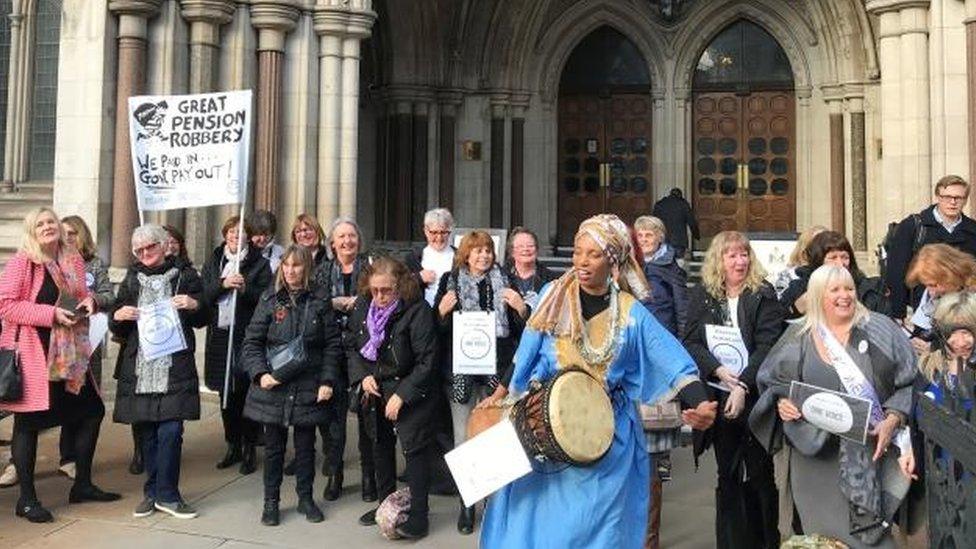
- Published5 November 2018
